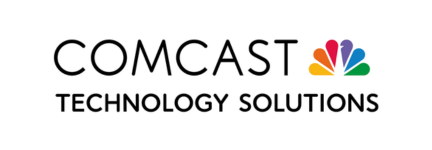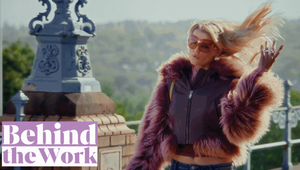
Hélène Ségol Tips for a Smooth Production

Hélène Ségol’s journey began with anthropology studies, including a year researching the symbolism of turtle meat in Costa Rica (yes, really). But her curiosity and creativity led her to filmmaking, earning degrees from La Fémis (Paris) and Filmakademie (Stuttgart).
Fresh out of film school, she joined Wanda, where she spent 13 transformative years taking on multiple roles. She initially led their music video department, earning international recognition for iconic projects such as Yoann Lemoine’s music videos and 'I <3 U So' for Cassius with WAFLA, among others.
She later founded Wanda Digital, which achieved remarkable success in its first year, winning numerous accolades including ten Cannes Lions and FWAs of the Year. Eventually, she took charge of managing Wanda’s roster of international A-list directors, further solidifying her reputation as a visionary leader in the industry.
After her years at Wanda, Hélène ventured into entrepreneurship by founding the cosmetics brand Green Barbès. The brand quickly gained success, ultimately being acquired by Blissim Paris. Yet, her love for production called her back, leading her to take the helm of Stink Films’ Paris branch in 2021.
Hélène’s portfolio expanded to high-profile campaigns for prestigious brands such as Lacoste, Cartier, Evian, Lego… collaborating with acclaimed directors like Seb Edwards, Fredrik Bond, Traktor, Gary Freedman, Félix Brady, James Rouse… Her passion for pushing creative boundaries shines through great projects like ‘Timeless’ by Seb Edwards for Lacoste, which earned an impressive tally of awards, including four British Arrows, four D&AD Pencils, and five Cannes Lions.
Today, as deputy managing director at LA\PAC, Hélène nurtures some of the industry’s brightest talents, including tirelessly championing bold ideas and expanding their influence both locally and globally.
From turtle meat symbolism to leading award-winning productions, Hélène’s career is a testament to her relentless creativity, determination, and love for storytelling.
LBB> What advice would you give to any aspiring producers or content creators hoping to make the jump into production?
Hélène> Production is all about problem-solving, managing stress, and working as a team. It’s an incredibly human job. In my humble opinion, you need empathy, generosity and great communication skills to be a good producer. Good communication is key for a smooth production.
LBB> What skills or emerging areas would you advise aspiring producers to learn about and educate themselves about?
Hélène> Being curious and staying connected to the world around you are essential. A good producer is always learning, adapting, keeping up with cultural and technological shifts. These days it’s crucial to have a solid understanding of what’s going on in the world of new technologies: AI obviously, but beyond that, to broader creative trends.
And paradoxically – or not – sustainability is just as important. It’s a major issue in our industry, and integrating best practices needs to be automatic for everyone. It would honestly be weird to start out in this industry today without fully integrating this aspect.
LBB> What was the biggest lesson you learned when you were starting out in production – and why has that stayed with you?
Hélène> Staying calm, fast thinking, and finding solutions without letting stress take over. That ability to adapt while still protecting the creative vision is something I carry with me every day.
LBB> When it comes to broadening access to production and improving diversity and inclusion what are your team doing to address this?
Hélène> Production should reflect the world we live in: when the teams behind the camera aren’t diverse, the stories we tell all look the same.
LBB> And why is it an important issue for the production community to address?
Hélène> Advertising and content creation shape our visual and cultural landscape. The images we put out there influence how we see the world, identity, gender, and a multitude of narratives. We have a responsibility to expand our perspectives and embrace diversity. By showing more diversity, we’re not just reflecting reality – we’re helping to shape it.
LBB> There are young people getting into production who maybe don’t see the line between professional production and the creator economy, and that may well also be the shape of things to come. What are your thoughts about that? Is there a tension between more formalised production and the ‘creator economy’ or do the two feed into each other?
Hélène> There’s definitely a crossover. The creator economy has democratised content creation, making it more accessible than ever to the general public. What we can call traditional production, on the other hand, ensures a high level of quality and craftsmanship. But creators work with agility and have a direct connection with their audience, which opens up new ways of telling stories.
So rather than tension, I see an evolution – and a source of inspiration for us.
LBB> If you compare your role to the role of executive producers when you first joined the industry, what do you think are the most striking or interesting changes (and what surprising things have stayed the same?)
Hélène> The biggest change I’ve experienced is the change of pace: absolutely everything has sped up, most notably the conditions we have to work in. The demand for content has exploded, and deadlines are tighter than ever. They’re now asking us to deliver the film before we’ve even had a chance to shoot it. The absence of breathing room, the constant race against the clock… It does worry me sometimes.
But what hasn’t changed is the importance of human relationships. Production is still an industry built on trust, collaboration, and creative vision. Those are the things that will always make the difference between a just so-so project and a really great one.
LBB> When it comes to educating producers how does your agency like to approach this? (I know we’re always hearing about how much easier it is to educate or train oneself on tech etc, but what areas do you think producers can benefit from more directed or structured training?)
Hélène> We focus a lot on knowledge-sharing – whether through tools or simply by exchanging experiences. We make sure young producers work alongside senior producers so that they can naturally absorb their experiences and insights. Nothing beats being immersed in the daily grind.
That being said, we do also encourage individuality. Everyone has their own working and producing style, and we push our producers to develop their own.
LBB> It seems that there’s an emphasis on speed and volume when it comes to content – but where is the space for up and coming producers to learn about (and learn to appreciate) craft?
Hélène> Having a strong film culture is already a huge source of inspiration. But the best way to grow as a producer is to work on a variety of projects – especially ones that allow for experimentation. Short films and passion projects often give more room to focus on craft.
And nothing beats surrounding yourself with the right people. Learning alongside directors, DPs, and experienced crews is what helps you level up. I really believe that talent attracts talent.
LBB> On the other side of the equation, what’s the key to retaining expertise and helping people who have been working in production for decades to develop new skills?
Hélène> The key is curiosity. This industry is fast moving, and staying relevant means staying open. Encouraging intergenerational collaborations is a great way to combine expertise with innovation.
LBB> Clearly there is so much change, but what are the personality traits and skills that will always be in demand from producers?
Hélène> Critical thinking, problem-solving, and adaptability will always be crucial. No matter how much technology evolves, production will always be about making things happen, despite the obstacles.
Strong communication skills, leadership, and the ability to manage complex creative and logistical challenges will never go out of style. The best producers know how to balance creativity with pragmatism – protecting the vision while making sure everything runs smoothly.















